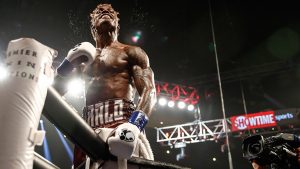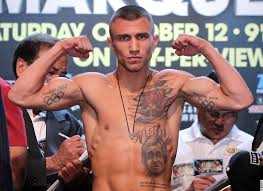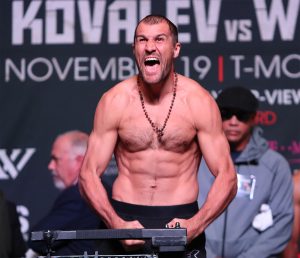2016: A Year Spent Fighting Over Nothing
By Jimmy Tobin

Were Malcolm Gladwell’s 10,000-hour theory more true than useful, this year would have seen many of boxing’s devotees fall just a few days short of becoming world class negotiators. Falling short of being world class is something not uncommon in boxing these days, despite publicists, promoters, trainers, and networks doing their absolute best to convince you that being one of the best anything in 2016 is qualification for being one of the best ever, and so there is a nice, deserving symmetry there.
While this second, propagandistic component makes sense—people who profit from boxing are compelled, rather easily, to telling fractional truths and whole lies about it—the first is harder to understand. Why the preoccupation with boxing negotiations? The simple answer is that in recent years there have been fewer and fewer barriers to information and more platforms for bantering about it. Why wouldn’t someone presented with a free and accessible opportunity to pursue an interest avail himself of it?
Except that is not what happened over the past year, where the motives for immersing oneself in the ins-and-outs of inking fights had very little to do with learning. No, the motivation this year—assuming, perhaps generously, that what transpired was not born primarily of so many having so little else to do—was rooted in prosecution and defense.
Nowhere was this clearer than in the (inevitably) failed negotiations for a Gennady-Golovkin-Saul Alvarez fight (Oh, and is that order of names, okay? Because even such minutiae matter when held aloft by the swaying arms of acolytes). Whatever the reasons, Golovkin and Alvarez—who each fought twice in 2016, finding among their four hapless opponents two welterweights to ragdoll—could not make the fight Golovkin wanted more than any other, the fight Alvarez professed no fear of.
Apologists for Alvarez had their reasons at the ready, all complimentary of the Mexican fighter who professed to “not fuck around” before ditching the title Golovkin was the mandatory for and spending his year fucking around with the chin of a twice-flattened welterweight and the flanks of someone called “Beefy”. And yet to focus on Alvarez’ conduct, his supporters will tell you, is to take your eyes off the real culprit, off Golovkin, who, according to sources as credible as they need to be for the purpose of supporting a doctrine presented as an argument, declined the opportunity he professed to so deeply covet.
What truth there is to any of these accounts is, as with too many things in boxing, mostly a matter of opinion. Like Gladwell’s theory, much of this grist derives its value not from its veracity but from its usefulness in pushing forth an idea, perhaps that Team Alvarez is staying his execution, or that Team Golovkin’s difficulty securing fights is their own doing.
That the fight, the event actually worth talking about does not happen gets lost somehow in the discussion about who is more to blame for it not happening, with the answer to that question of guilt reflecting little more than allegiances pledged long ago. Some consolation that is.
It would be bad enough if people could find the negotiations of a fight more interesting than the fight itself. Except it’s not about interest at all, not in the eyes of those devoted to fighters, even to promoters. Instead, they interpret in boxing’s failure to make fights something other than failure, finding instead hypothetical victories for fighters whose meaningful victories are delivered only by their fists and promotional outfits who should be judged by their ability to deliver intriguing fights.
Strangely, the response to failed negotiations is not a collective shoulder turn on all parties involved. Granted this response is extreme, but at least it is sensical: why support entertainers who disregard your requests for entertainment? Isn’t responding in disgust better than making excuses and attributing blame and doing so with a fervor typically found in support of the action? That these excuses come adorned in whatever information and misinformation those in the know actually care to reveal hardly makes them any better. Given the traction this blaming and absolving gains, making the fights people actually want to see seems almost counter-intuitive: if people find satisfaction in arguing about why fights are not made, if they are going to direct their hostilities at differing opinion rather than at the people perpetually kicking the chair away, why make fights?
The trendy retort here is to say that boxing is a business and that understanding its complexities both allows and demands a more nuanced response to disappointment than turning away. And there is some truth to that, as boxing requires among other things a tolerance for rigmarole and an appreciation for peculiarities that fly in the face of competition (like the fact that, however odd it may sound, rarely is matching two men at the height of their powers a priority). That is hardly a justification, however: boxing can be both a business and entertaining and to simply lower the first characteristic like a gavel on the discussion is to justify the status quo.
It should come as little surprise that if those drawn to boxing for reasons beyond a violent spectacle were to determine the sport’s fate it would look very much like it did in 2016.



